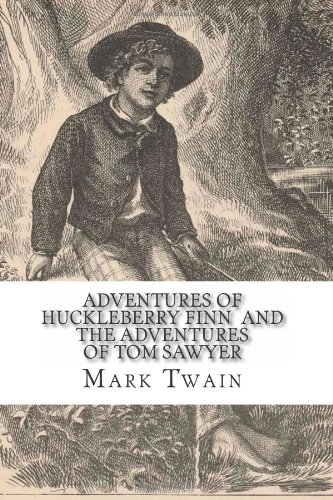When I was compiling the list of classic books I was going to read, I only marked off books that I was absolutely certain I had read all the way through. Then there were books like the Adventures of Huckleberry Finn that I had probably read at some point, but couldn't say for sure. Although not on my list, I went ahead and read the Adventures of Tom Sawyer first, since it seemed like it would provide at least some context. I imagine most people have already read and have their own feelings about these books, but I figured I could still post what really stuck out to me.


Reading books set in the last 19th century can certainly be jarring to a modern reader. It's not only the language, which it one of the most common objections to the book, though it certainly is appalling. It was more the utter and complete disregard of black people as, well, people. A moment that really stuck with me is when Huck is telling a made up story of an explosion on a steamboat. When asked if anybody was hurt, he responds (in much worse terms): "No’m. Killed a [black person]." I think this was Twain trying to show how bad the racism in the South was, so it's not clear to me how realistic it is, but it certainly seems like something that could have been said. I guess it's a sign of progress that this exchange strikes me as fundamentally inhuman, but that doesn't really make it any less galling.
Even if one ignores the behaviors that are at least somewhat the result of the times in which the characters lived, their behaviors are still fairly appalling. Instead of telling him that he's been freed Tom leaves Jim enslaved and risks his life so that he can have an adventure. Huck seems to be the only significant character who gives any thought at all to how his actions will impact other people.
Clearly these are important works in the American canon. But I'm not sure what audience these books were intended for or who should read them today. They are, for the most part, appropriate for pre-teens, based on the reading level and story. As an incisive commentary on racism, however, it seems like that would be a bit young.
No comments:
New comments are not allowed.